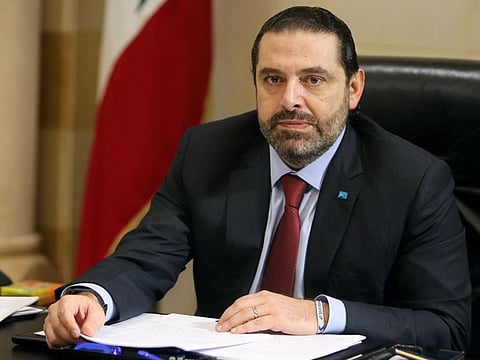Hariri: Hezbollah is a regional problem
Lebanese prime minister says he is limited in his ability to rein in Iran-backed group

Dubai: In an interview with CNBC, Lebanese Prime Minister Saad Hariri tried to distance his country from recent Hezbollah attacks on Israel.
Tensions spiked between the two countries over the weekend after an exchange of fire between the two countires which started with an Israeli drone strike in the Hezbollah stronghold of Daheya, a suburb of Beirut.
The militant group promised a response and fired rockets a few days later into northern Israel.
“Hezbollah is not a Lebanese problem — only — it is a regional problem,” Hariri said.
Hezbollah is not a Lebanese problem — only — it is a regional problemSaad Hariri, Lebanese Prime Minister
“Israel wants to have ... this scenario that Lebanon is responsible, with what Netanyahu says, and if you want to buy it, buy it. But he knows and the international community knows that this is not true.”
Israeli Prime Minister Benjamin Netanyahu in a speech last week warned Hezbollah — and Lebanon — to “be careful what you say and more careful what you do.”
Hezbollah is a US-desginated terrorist group, but also operates as a political group and has members represented in parliament.
Due to its massive funding by Iran, it is extremely powerful and holds significant way in the country.
However, many Lebanese are angered by Hezbollah’s mafia-like attitude, often making decisions by force without the consent of the government.
In the interview, Hariri admited that he was limited in his ability to rein in Hezbollah.
For years, Hezbollah has defied Lebanon’s neutrality policy by actively fighting in Syria’s civil war to prop up the government of Bashar Al Assad, also an ally of Iran.
Lebanese politicians were helpless to hold the group to account.
“I am a pragmatic person, and I know my limits, and I know the limits of this region. If people were serious about this issue, they would have done things 10, 15, 20, 30 years” ago, Hariri told CNBC.
His main focus, he said, is strengthening Lebanon’s institutions such as its central bank and its security forces.



